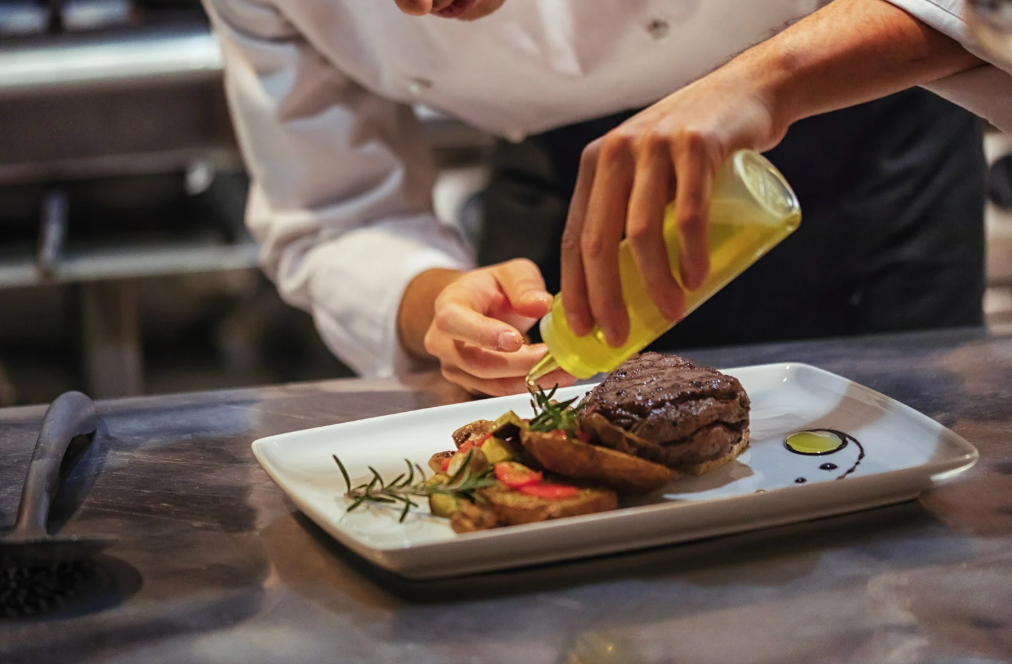Local SEO Tips for Restaurants to Get More Customers - Local SEO for Restaurants - Appear in Local Search and Rank Higher
The way people discover where to eat has completely transformed over the past decade. In the past, diners relied on word of mouth, paper menus, or local ads to choose their next meal. Today, however, most restaurant decisions begin online. Whether someone searches “best tacos near me,” asks Siri for “family-friendly restaurants in Miami,” or scrolls through Google Maps, restaurants with strong local SEO strategies capture the most attention—and the most customers.
For restaurants in 2025, local SEO for restaurants is no longer optional—it’s essential. Customers are using search engines, review platforms, and even AI tools to decide where to dine. If a restaurant isn’t visible in local search results, it risks losing traffic to competitors who are.
As a restaurant owner or manager, your online presence is just as important as your storefront, your sign, your customer reviews, and your food.
Sapphire SEO Solutions works with restaurants to improve their search engine optimization, and we have some local SEO tips for restaurants to help increase visibility, attract more diners, and grow revenue.
Why Local SEO Matters for Restaurants
The restaurant industry thrives on visibility and reputation. According to research:
90% of dining decisions start with a local search. Customers rely on Google to find nearby restaurants, check reviews, and explore menus.
Over 90% of people read reviews before choosing a place to eat. Online reputation directly influences where people dine.
AI-powered assistants and apps recommend top-rated local restaurants based on SEO signals, reviews, and relevance.
Simply put: when potential diners search for restaurants online, they often pick from the first few results. Strong local SEO ensures your local business, your restaurant, shows up at the exact moment people are deciding where to eat.
Here are some of the best tips we have to attract more customers, appear higher in Google search, and even get found by AI tools:
Tip 1: Optimize Your Google Business Profile - It's So Important for Restaurants to Have This
Your Google Business Profile (GBP) is the cornerstone of restaurant SEO. It is often the first impression customers have of your restaurant, appearing directly on search results and Google Maps. This is free for business owners, and you can use it to improve your local SEO. A restaurant with an optimized GBP will rank higher in search engines, like Google and Bing, and it will help your restaurant get found more easily when a customer searches for a local restaurant.
Here’s how to optimize it:
Claim and verify your profile. This establishes ownership and gives you full control over updates.
Complete business information. Add business hours, address, phone number, website, and services (delivery, dine-in, takeout).
Upload high-quality photos. Images of food, drinks, and the dining atmosphere increase engagement.
Highlight attributes. Options like “outdoor seating,” “family-friendly,” “vegan options,” or “pet-friendly” help match searches.
Encourage reviews. Customers are more likely to choose a restaurant with dozens of positive reviews.
Respond to reviews. Replying—both to compliments and complaints—shows attentiveness and builds trust.
Pro Tip: Restaurants that regularly update menus and post photos on their GBP see significantly more traffic and clicks.
Tip 2: Target Local Keywords Strategically - Local SEO for Restaurants Depends on This
To rank higher and help search engines rank content, restaurants need to use the exact words potential customers are searching. This means targeting local keywords that combine cuisine, dining style, and location.
Examples include:
“Best Italian restaurant in Miami”
“Romantic dinner spots in Fort Lauderdale”
“Healthy lunch near Boca Raton”
When developing content and rank higher in local search results, restaurants should incorporate these keywords naturally across:
Website pages (home, menu, about, contact)
Blog articles (e.g., “Best Spots for Date Night in Miami”)
Meta titles and descriptions
Image alt text (e.g., “wood-fired pizza in Miami”)
Pro Tip: Consider voice search optimization. Phrases like “Where’s the best sushi near me?” or “What restaurants are open now in Fort Lauderdale?” should be worked into content since voice searches are conversational.
Tip 3: Focus on Online Reviews and Reputation Management - Reply to Customer Reviews
In the restaurant world, reviews are as influential as word of mouth. A strong reputation means more customers, while negative reviews can push potential diners toward competitors.
How to boost your restaurant’s reviews:
Ask happy customers to leave reviews. QR codes on receipts, small reminders from staff, or links on the website can help.
Offer excellent service consistently. The better the dining experience, the more likely customers will review.
Never ignore reviews. Respond to positive feedback with thanks, and address negative reviews professionally.
Pro Tip: A mix of Google, Yelp, TripAdvisor, and OpenTable reviews builds credibility. Restaurants with 4.5+ star ratings and consistent responses often rank higher in local search, and it helps with optimizing your online presence.
Tip 4: Create Location-Specific Content for Your Restaurant Website to Improve Local Search Rankings
Restaurants can stand out by publishing localized content that ties into community interests and searches. This positions the restaurant as a trusted local favorite and signals to Google and other search engines that your restaurant business is legitimate and authoritative.
Ideas include:
Blog posts like “Top 5 Brunch Spots in Miami Beach” or “Best Vegan Restaurants in Fort Lauderdale.”
Announcements about seasonal menus, local festivals, or local events.
Chef interviews and behind-the-scenes features.
Highlighting partnerships with local farms, breweries, or suppliers.
Pro Tip: Posting fresh content helps Google recognize that a restaurant is active, engaged, and relevant to local searchers. Over time, this can help your restaurant appear higher in search results, specifically on Google search and maps.
Tip 5: Build Local Citations and Ensure NAP Consistency - Ensure Local Business Information is Consistent
One of the most overlooked aspects of restaurant SEO is citations. These are listings across directories, review platforms, and maps. When businesses appear on directories and lists, it helps with visibility in local search.
To maximize impact:
Make sure your NAP (Name, Address, Phone Number) is identical across all platforms.
Claim listings on Yelp, TripAdvisor, Zomato, OpenTable, and other popular directories.
Submit information to local chambers of commerce, food blogs, and tourism sites.
Pro Tip: Inconsistent NAP details (like mismatched phone numbers) confuse search engines and customers, lowering your ranking results on Google and other search engines.
Tip 6: Optimize for Mobile and Voice Search - One of the Best Local SEO Tips for Restaurants
Most people search for restaurants while on the go, which makes mobile optimization critical.
Restaurants should ensure:
Their website loads quickly (under 3 seconds).
Menus are easy to read on smartphones.
Online ordering is mobile-friendly.
Contact info and directions are accessible with one click.
Voice search also plays a huge role. Many people ask smart devices, “What’s the best Thai food near me?” Restaurants should use conversational phrases and FAQs on their site to align with these queries.
Tip 7: Use Social Media for Local Restaurant SEO
Social media doesn’t just build community—it also boosts local SEO.
Restaurants can leverage it by:
Posting high-quality, geo-tagged photos of dishes and drinks.
Sharing daily specials and events.
Encouraging customers to tag the restaurant in their posts.
Using local hashtags (#MiamiEats, #FortLauderdaleFoodies).
Pro Tip: Engaging content like chef spotlights, kitchen prep videos, or live events generates shares and backlinks that support SEO. Though social media isn't a necessity, it can really boost your online visibility and help you rank higher in search results.
Tip 8: Leverage Local Backlinks and Partnerships
Backlinks from reputable local sources can dramatically improve search rankings. For restaurants, this means building connections in the community.
Strategies include:
Partnering with local food bloggers for reviews.
Sponsoring community events or charity fundraisers.
Getting featured in local magazines, tourism websites, and news outlets.
Collaborating with nearby businesses for cross-promotions (e.g., “Dinner + Wine Tasting” events).
Pro Tip: A single backlink from a respected local publication can drive significant SEO value and new customers.
Work with Sapphire SEO Solutions to Get the Best SEO for a Restaurant
In today’s competitive dining landscape, restaurants cannot rely solely on good food and service to attract customers. Visibility online—especially in local search results—determines whether diners choose your restaurant or your competitor’s.
By optimizing Google Business Profiles, targeting local keywords, managing reviews, creating localized content, and building community connections, restaurants can significantly increase traffic and reservations.
Local SEO is the new word of mouth for restaurants. Those who invest in it today will see long-term benefits: more visibility, more diners, and a stronger brand reputation.
At Sapphire SEO Solutions, our SEO experts specialize in restaurant SEO services designed to put restaurants at the top of search results. From Google optimization to review management and local content strategies, we help restaurants dominate local search and attract more loyal customers.
Are you ready to appear at the top of search engines? Do you need help with your restaurant SEO strategy? Contact our team. Reach out for a quote, or start by ordering content right now.













